Economic
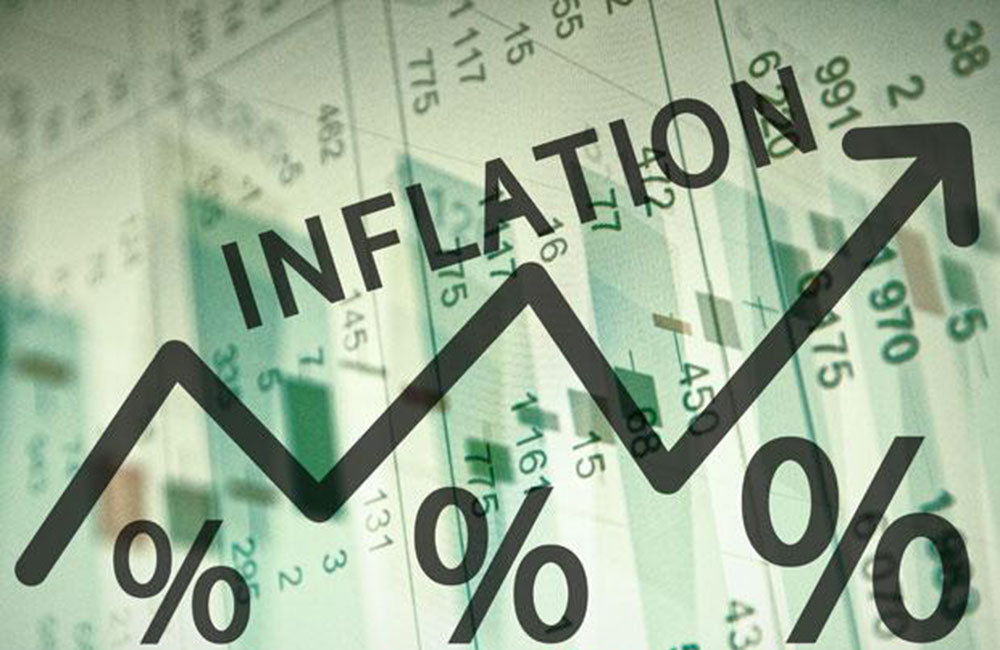
Sri Lanka inflation increased to 5.7 per cent in July
The CCPI, measured on an annual average basis, increased marginally to 4.2 per cent in July 2021 from 4.1 per cent in June 2021.
Monthly change of CCPI recorded at 0.50 per cent in July 2021 due to price increases observed in items of the Non-food category.
The core inflation (Y-o-Y), which reflects the underlying inflation in the economy, increased to 3.7 per cent in July 2021 from 3.2 per cent in June 2021.
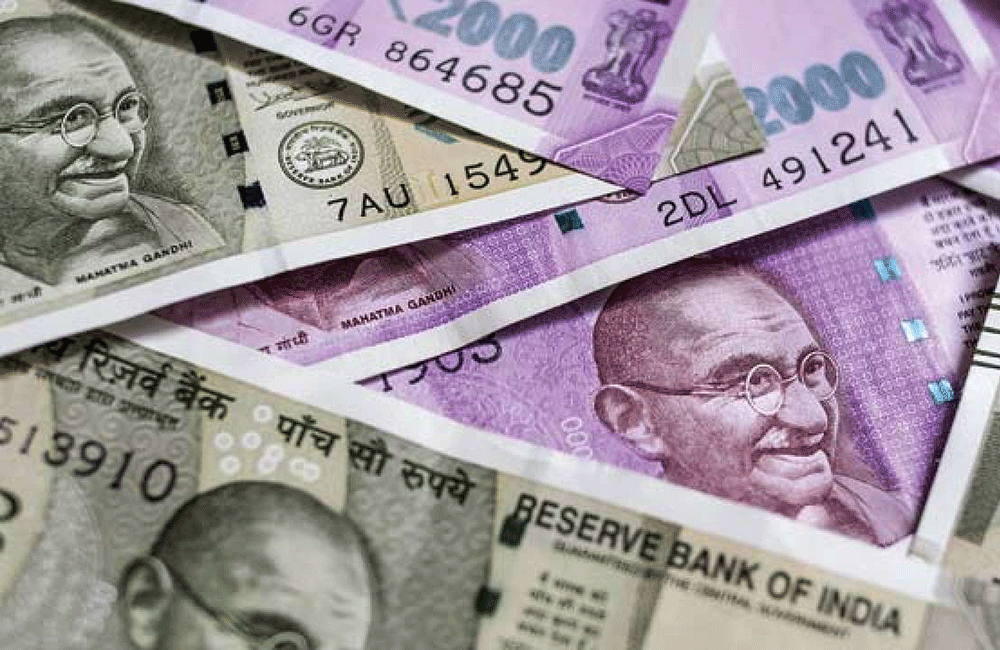
Sri Lanka reverts to $400 Million foreign currency swap with RBI
Sri Lanka originally signed the swap deal available to SAARC countries in 2020 and repaid it in February 2021 after rolling it over once. On February 1, the Sri Lankan Central Bank settled the USD 400 million currency swap facility from the RBI. Central Bank Governor Lakshman said the same swap could be obtained after August.
The Sri Lanka-RBI swap deal came under the facilities available to SAARC countries in 2020. A few weeks back, Sri Lanka entered a 200 million dollar swap with the Bangladesh central bank. Lakshman said the signing of the agreement for the Bangladesh swap would happen soon.
Sri Lanka has to pay a billion US dollar sovereign bond in July 2020. Sri Lanka had 4.4 billion US dollars of reserves in April 2021. COVID-19 struck Sri Lanka in March 2020, putting its foreign reserves under strain since, as tourism, worker remittances and exports were badly hit.
The SAARC currency swap framework came into operation on November 15, 2012, to provide a backstop line of funding for short term foreign exchange liquidity requirements or short-term balance of payments stress till longer term arrangements are made.
The facility is available to all SAARC member countries, subject to their signing the bilateral swap agreements.
(NDTV)
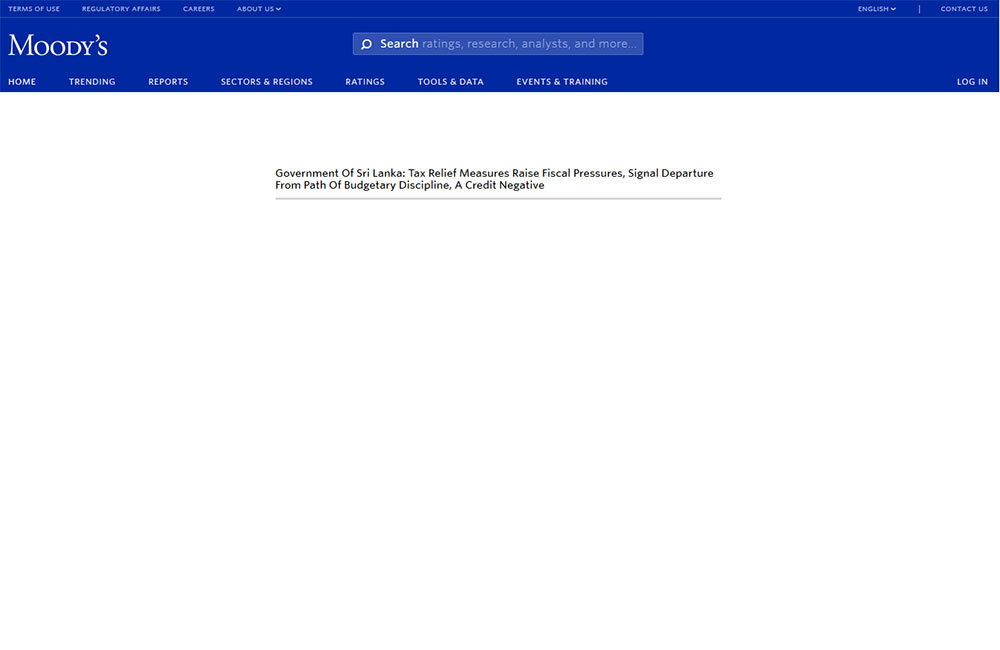
Moody's places Sri Lanka's Caa1 rating under review for downgrade
The rating decision is driven by assessment that the island nation's increasingly fragile external liquidity position raises the risk of default. It also reflects governance weaknesses in the ability of the country's institutions to decisively mitigate significant and urgent risks to the balance of payments.
Although the government has secured some financing, mainly from bilateral sources, its financing options remain narrow with borrowing costs in international markets still prohibitive, Moody's said in a statement.
Moody's expects Sri Lanka's foreign exchange reserves to continue declining from already low levels. This will further erode its ability to meet sizeable and recurring external debt servicing needs, and increasing balance of payment risks.
It has extremely weak debt affordability with interest payments absorbing a very large share of the government's very narrow revenue base. This compounds the debt repayment challenge.
The review will focus on whether the sovereign is able to use time provided by current foreign exchange reserves and bilateral arrangements to implement measures that widen and increase its financing sources for the medium term. And avoid default for the foreseeable future, it added.
Sri Lanka's foreign currency country ceiling has been lowered to Caa1 from B3, while the local currency country ceiling remains unchanged at B1. The three-notch gap between the local currency ceiling and the sovereign rating balances relatively predictable institutions and government actions against the low and declining foreign exchange reserves adequacy.

Government to disburse USD 9 billion for high impactsector projects
The government's Foreign Resource Mobilisation Strategy(FRMS) for the period 2020–2025 was marked with realigning its projectpipeline of almost USD 9 billion to be disbursed in the next 5–7 years, intohigh impact sectors, Finance Ministry sources revealed.
It is also ensuringthat wherever possible if the technology is available in the country and if theimport content is minimal such activities are to be executed through localfunds and local contractors.
This will reduce the dependency on foreign currency debtand thereby the currency risks, to finance development projects especially inthe context of alternatives being available.The Government’s financing strategy is more domesticcurrency tilted - it is nevertheless not envisaged to result in the crowding outof resources in the market.
The capital budget is to be implemented through domesticcontractors such that the funds will be circulated to the private sector viathe Government.
To support domestic industries given that the Governmentis the single largest procurer of goods and services, procedures wereintroduced to provide preference to domestic producers of construction,software and hardware, furniture and allied appliances.
However, at the same time, the Government has approvedthe construction of the elevated expressway of 16 kilometres, connecting theNew Kelani Bridge and Athurugiriya, which will in reality seamlessly connectthe Southern Port to the Colombo Port and also the Port City.
The contractor will Build, Operate and Transfer the elevated expressway to the Government at the end of 15 years after theconstruction.
Such modalities will enable the country to create assetsthat has the potential to generate significant value in the economy without thefiscal space being imposed at the outset itself.
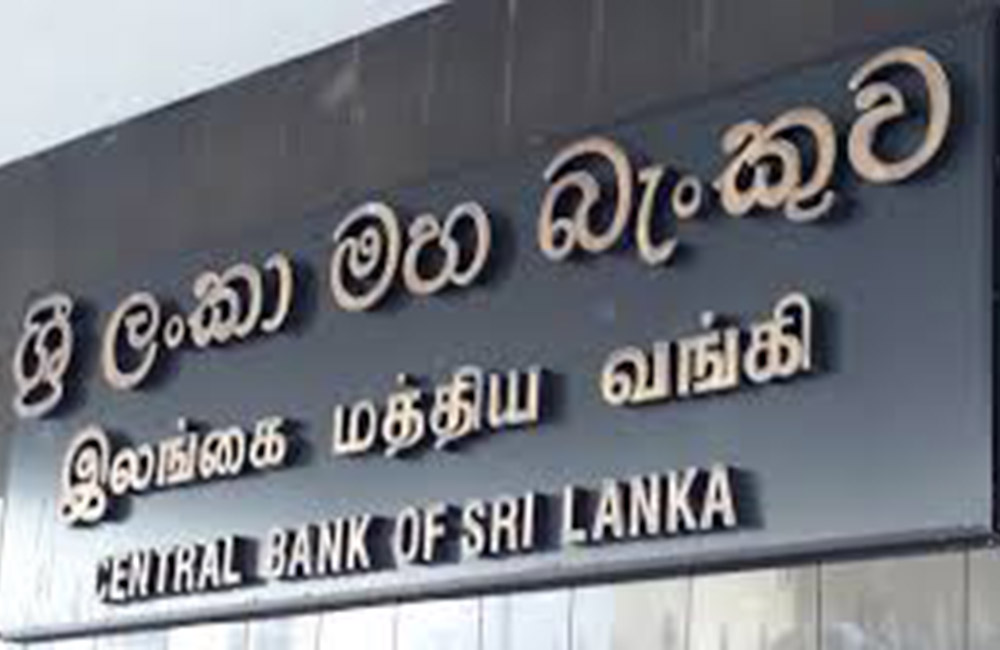
CBSL tightens currency outflows amid cash crunch
Sri Lanka's central bank on Sunday further tightened controls on the outflow of foreign currency to combat a growing cash crunch triggered by the coronavirus pandemic.
Foreign exchange reserves have almost halved since late 2019 to $4 billion after the rupee sank to a record low in 2020.
The economy has been badly hit by the spread of the virus and lockdowns in its worst downturn since independence from Britain in 1948.
The Central Bank of Sri Lanka said overseas investments by local firms would be suspended for six months.
The amount of capital that companies and citizens can take out of the island nation would also be restricted, it added. Sri Lanka has already banned imports of luxury goods and cars since 2020 to combat the foreign currency outflows.
The government is planning to extend the import ban to mobile phones, computers and electronic consumer goods, local media reported recently.
The central bank said in a statement that the restrictions were to "assist and maintain the financial system's stability."
International rating agencies have expressed concern over Sri Lanka's ability to service its huge foreign debt.
But central bank governor W.D. Lakshman has said the country will meet its debt obligations, which amount to $3.6 billion in the next six months.
The country's debt has ballooned over the past two decades after the financing of several infrastructure projects that critics say have become white elephants. (AFP)
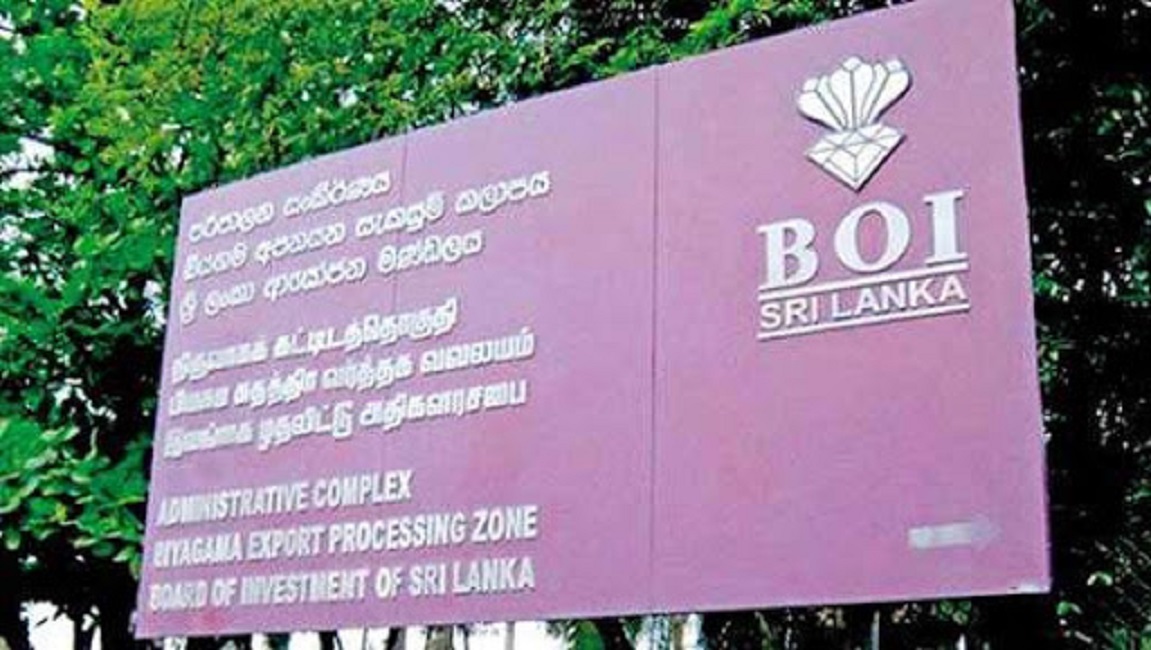
BOI extends support to export oriented ventures but FDI not in sight
The Board of Investment (BOI ) strives to ensure uninterrupted services for export-oriented enterprises amidst private sector concerns over the impact of the latest lock down in view of the worsening third wave of the COVID-19 pandemic.
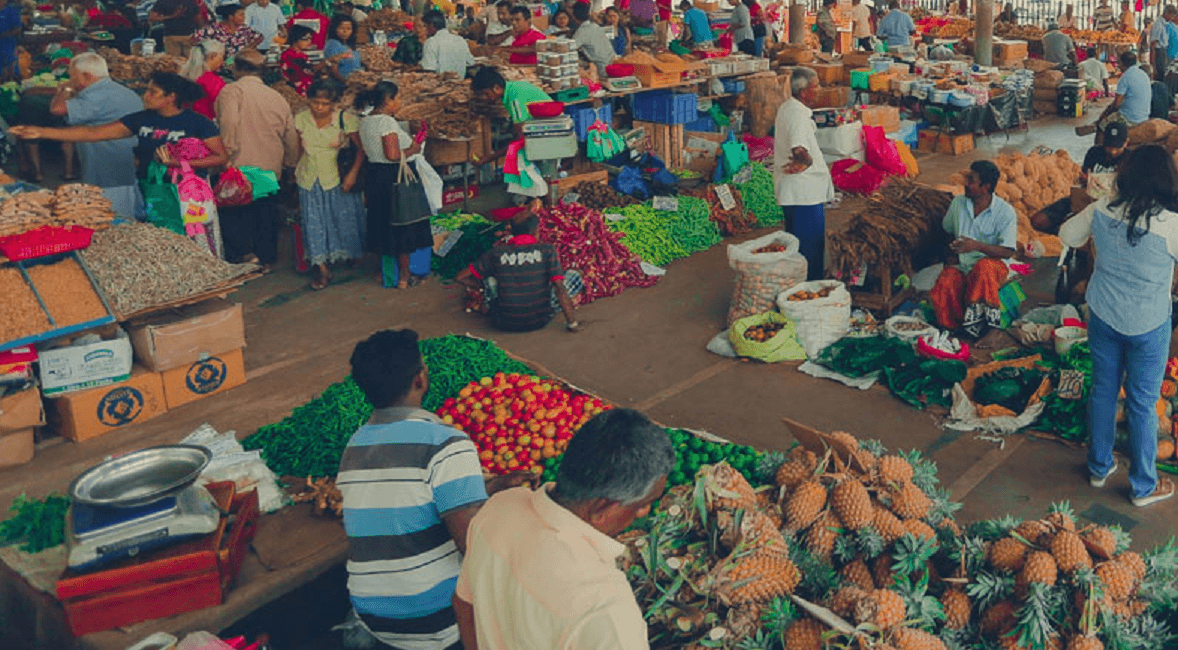
Inflation heading towards its peak: Day to day life sinks into a troublesome depth!
Headline inflation, as measured by the year-on-year (Y-o-Y) change in the Colombo Consumer Price Index (CCPI, 2013=100), increased to 5.2 per cent in June 2021 from 4.5 per cent in May 2021.
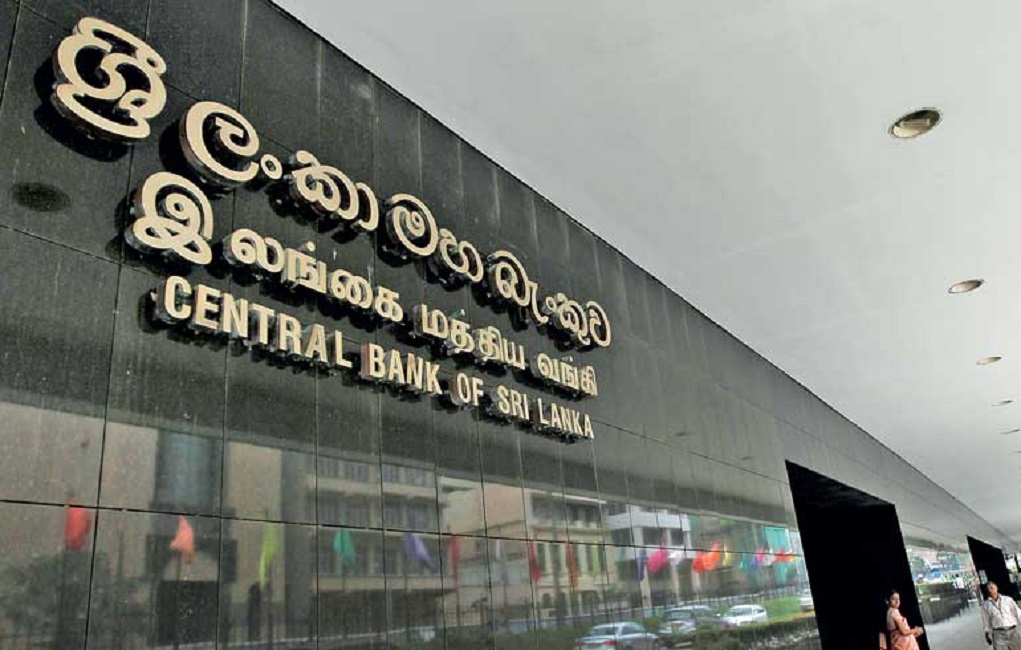
Sri Lanka bonds go from Asia’s worst to best after China loan
Sri Lankan government debt is leading gains in Asian dollar bonds this year as investors bet that the nation will avoid defaulting on its short-term notes, with the help of a Chinese funding facility.
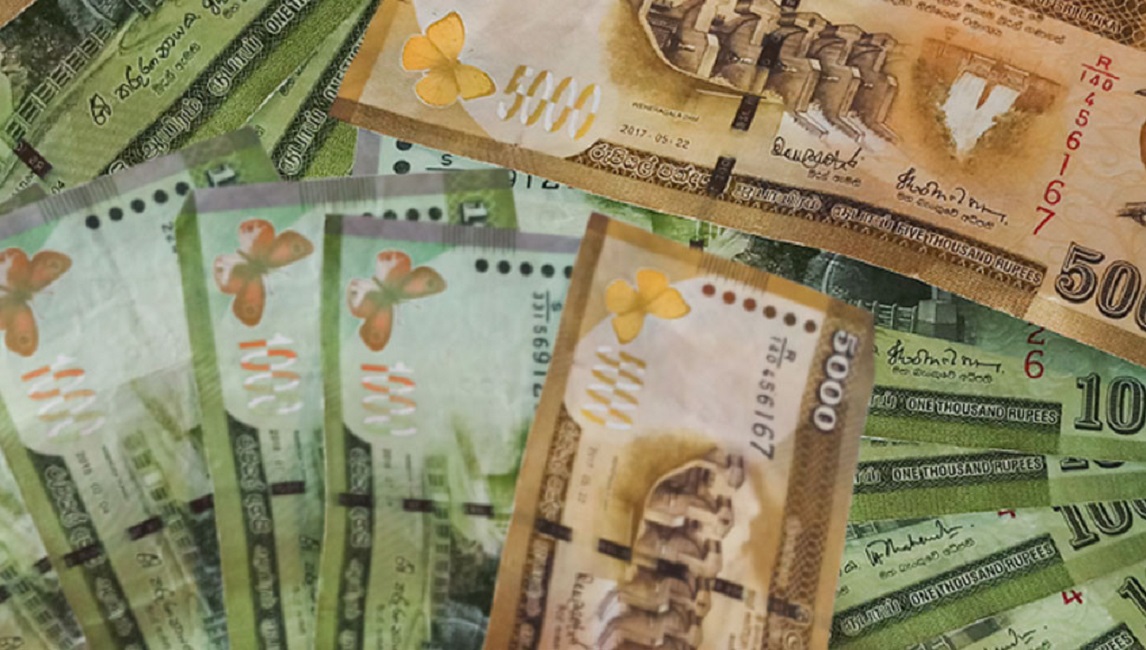
Sri Lanka prints Rs. 208.5 billion setting a single-day record
The Central Bank Monday (28) printed the highest amount of money recorded in a single day to bridge a budget hole, amid shrinking tax income, largely due to virus-related lockdowns and increased expenditure to contain the virus.
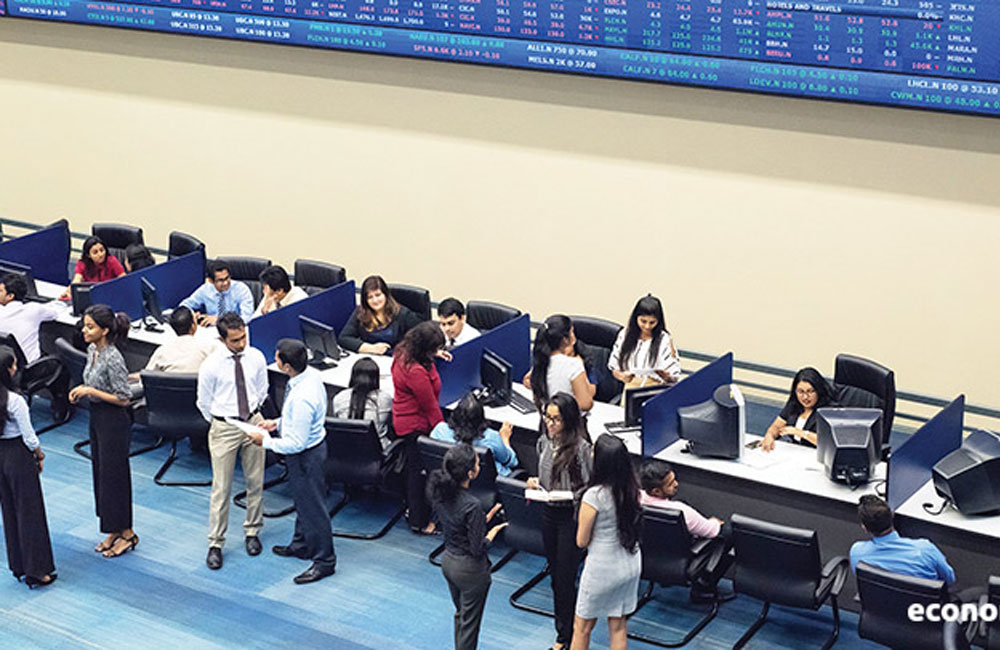
Sri Lanka stocks down, foreign buying in Wind force
Sri Lanka stocks fell 1.42 percent on Thursday though foreign investors bought 527 million rupees of Windforce Limited, a renewable energy firm which debuted on the market, after a successful 3.2 billion rupee initial public offering.
The Colombo benchmark All Share Price Index fell 105.53 points to close at 7,327.91.The S&P SL20 index of more liquid stocks fell 1.54 per cent or 45.73 points to close at 2,931.59.Turnover was 2.6 billion rupees with 36 stocks gaining and 143 falling.
LOLC Holdings fell 9.75 rupees to close at 319.75 rupees contributing most for ASPI’s fall, Brown and Company fell 5.75 rupees to close at 174.50 and Browns Investment fell 10 cents to close at 6.30 rupees a share.
LOLC Finance closed 20 cents down at 6.10 rupees.Expolanka Holdings fell 1.80 rupees to close at 47.80 rupees a share.Melstacorp Holdings closed 2.10 rupees down at 45.70 rupees a share.
Hayleys Plc closed 2.20 rupees down at 76.20 rupees with key subsidiaries Dipped Products falling 1.20 rupees to close at 56.50 rupees and Haycarb Plc falling 4.00 rupees to close at 104.00 rupees.
John Keells Holdings closed 50 cents down at 146.25 rupees a share and Vallibel One fell 2.10 rupees to close at 56.30 rupees a share The Kingsbury closed flat at 6.10 and Singer Sri Lanka closed 1.10 rupees down at 19.00 rupees.
A 131 million rupees negotiated trading was seen in Windforce at 18.00 rupees a share and the stock Closed 2.50 rupees or 15.63 percent higher, a share at 18.50 rupees after began trading above its price of 16 rupees per share after raising 3.2 billion rupees for wind power projects in Sri Lanka and Senegal.
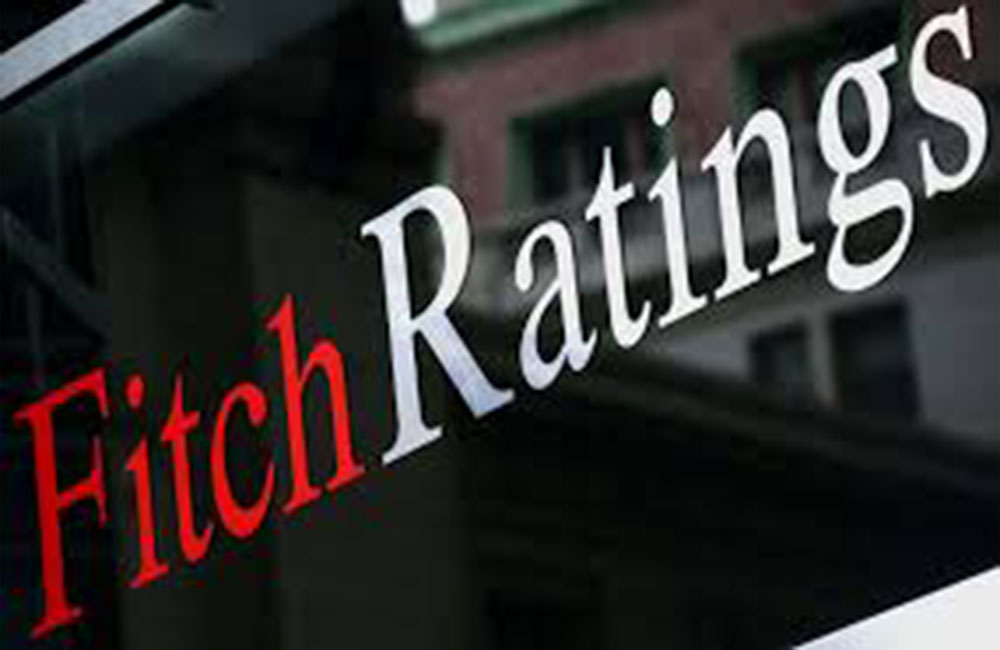
Fitch affirms Sri Lanka at 'CCC'
Sri Lanka's 'CCC' rating reflects a challenging foreign-currency sovereign external debt repayment burden over the medium term, low foreign-exchange reserves and high and rising government debt that gives rise to sustainability risks, Fitch Ratings said on Monday (14).
"External liquidity pressures have eased somewhat in recent months following bilateral loan disbursements, and our expectation of a forthcoming IMF special drawing rights (SDR) allocation. Nevertheless, Sri Lanka's medium-term debt service challenges are substantial and pose risks to the sovereign's debt repayment capacity, in Fitch's view. A total of about USD29 billion in foreign-currency debt obligations are due between now and 2026, against foreign-exchange reserves of USD4.5 billion as of end-April 2021," it said.
The authorities have recently secured project financing through various multilateral and bilateral channels, including the Asian Development Bank (AAA/Stable), Asian Infrastructure Investment Bank (AAA/Stable), China Development Bank (A+/Stable) and The Export-Import Bank of Korea (AA-/Stable), as well as swap facilities under the South Asian Association for Regional Cooperation (SAARC) currency framework and the People's Bank of China, equivalent to USD400 million and USD1.5 billion, respectively.
The planned IMF SDR allocation would also add USD780 million to reserves. These resources should enable Sri Lanka to meet its remaining debt maturities through the rest of this year, including a USD1 billion International Sovereign Bond maturing in July. However, the authorities have yet to specify their plans for meeting the country's foreign-currency debt-servicing needs for 2022 and the medium term. They have consistently indicated that they do not plan to seek programme financing from the IMF.
Fitch projected foreign-exchange reserves to remain at about USD 4.5 billion by end-2021 before declining to USD3.9 billion by end-2022.
"Under our baseline, the current account deficit is likely to widen to 2.8% in 2021 and narrow to 2.1% of GDP in 2022. Our forecasts assume remittances will remain resilient in 2021-2022 and tourism is likely to recover only from 2022," Fitch Ratings said.
Economy contracts by 3.6%
Sri Lanka's economy contracted by 3.6% in 2020 as a result of the Covid-19 pandemic. We project growth of 3.8% in 2021, down from an earlier forecast of 4.9%, in light of a recent surge in virus cases. We expect the economy to grow by 3.9% in 2022. There remains a high degree of uncertainty associated with our forecasts in light of the evolution of new Covid-19 cases in the country. The authorities plan to inoculate 60% of the population by end-2021, but this target could be hampered by vaccine supply shortages.
Travel and tourism, an important driver of the economy, have been hit hard and the outlook for recovery remains uncertain, particularly given the recent surge in virus cases. The direct contribution of tourism to pre-pandemic GDP was about 4%, but the indirect contribution was much higher. Tourist arrivals in the first five months of 2021 were 97% lower than the same period last year.
The general government deficit widened to 11.1% of GDP in 2020, from 9.6% in 2019, as the economic contraction led to a sharp fall in fiscal revenue. We expect the deficit to remain elevated in 2021 and 2022 at 11.1% and 10.4%, respectively. Our deficit projections are wider than those presented by the government under its growth-oriented strategy of 9.4% and 7.5%, respectively. Under our forecasts, the revenue-to-GDP ratio in 2021 would rise to 10.9% in 2021 and 11.1% in 2022, compared with the authorities' projections of 11.9% and 13.0%, respectively.
The government's fiscal consolidation strategy is based on a planned acceleration in GDP growth, underpinned by tax cuts, as opposed to direct revenue-raising or expenditure measures, albeit supported by planned improvements in tax administration. The interest-to-revenue ratio remains high, at around 71% as of 2020, well above the 'CCC' median of 13%. The government expects to achieve primary surpluses from 2023, supported by annual GDP growth of 6%, which appear optimistic in our view as we anticipate growth that is closer to 4%, still above the pace in the immediate pre-pandemic period.
General government debt reached 101% of GDP by end-2020, broadly in line with our forecast at our last review in November. Our baseline forecasts suggest this ratio will rise further to 108% by 2022. Fitch does not think the government will meet its 2025 targets of reducing government debt to 70% of GDP and narrowing the fiscal deficit to 4% of GDP.
Sri Lanka's basic human development indicators, including education standards, are high compared with those of rating category peers. The UN Human Development Index Score positions Sri Lanka in the 62nd percentile, well above the 27th percentile for the 'CCC' median. The country's per capita income of about USD3,822 is also above the 'CCC' median of USD2,662.
The banking sector is vulnerable to Sri Lankan sovereign weakness due to the banks' significant direct exposure to the sovereign and their domestically focused operations. The operating environment for banks remains challenging, and asset quality continues to be a key risk. Reported asset-quality measures at end-2020 - impaired loans for Fitch-rated banks rose to 9.7% by end-2020 from 9.5% at end-2019 -- likely understate the extent of credit impairment due to forbearance measures.
ESG - Governance: Sri Lanka has an ESG Relevance Score of '5' for Political Stability and Rights as well as for the Rule of Law, Institutional and Regulatory Quality and Control of Corruption, as is the case for all sovereigns. These scores reflect the high weight that the World Bank Governance Indicators have in our proprietary Sovereign Rating Model. Sri Lanka has a medium World Bank Governance Indicator ranking in the 46th percentile, reflecting a recent record of peaceful political transitions, a moderate level of rights for participation in the political process, moderate institutional capacity, established rule of law and a moderate level of corruption.
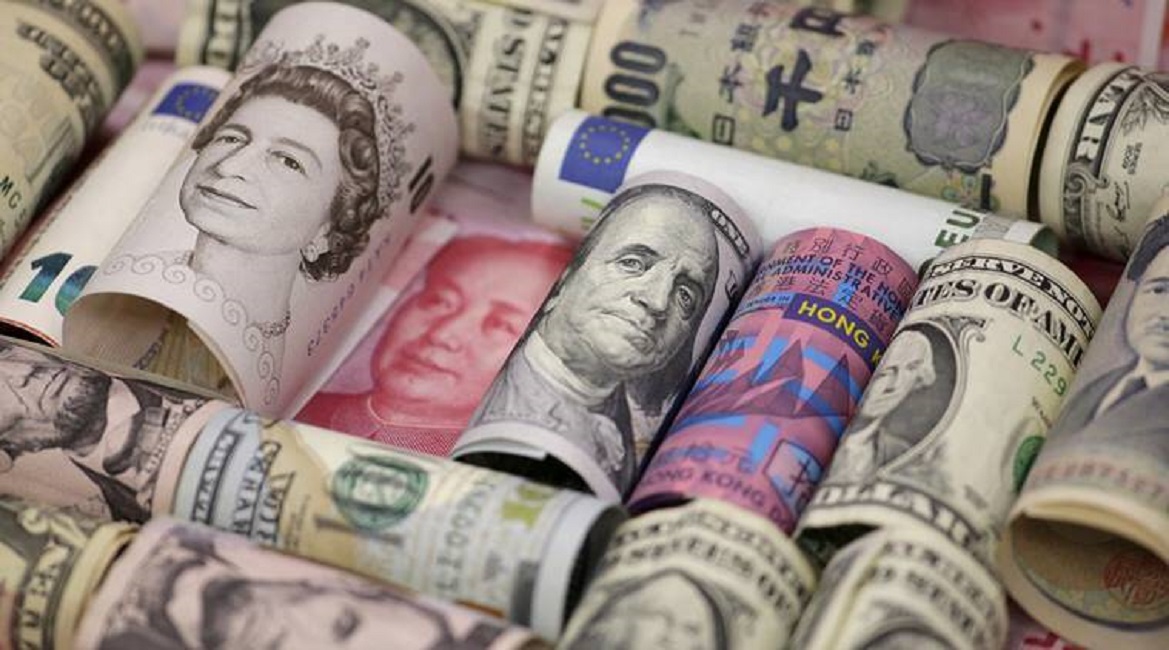
Finance companies get green light to raise foreign funding
The cash strapped Sri Lankan government has been compelled to introduce a Regulatory Framework to facilitate foreign currency borrowings by Licensed Finance Companies.
Page 4 of 22